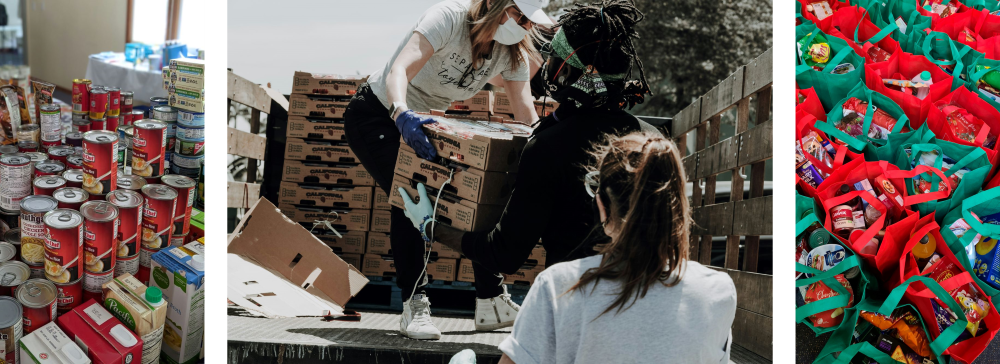Using our site
By using our site, you confirm that you accept our terms of use and that you agree to comply with them. If you do not agree to these terms, you must not use our website. The products and services referred to on this site are not available to the general public in any jurisdiction, and the information provided does not constitute an offer, invitation to acquire or sell any service, product or security referred to on this site. You are not permitted to re-publish any information obtained from this website without our prior consent. You acknowledge that you are accessing this website on your own initiative and are responsible for compliance with all laws and regulations applicable in your own jurisdiction. We use a web analytics service to monitor the usage on the website. We may make changes to our site from time to time and it is subject to change without notice. We may also suspend, withdraw or restrict the site for business or operational purposes. It may not always be available or be uninterrupted.
Floreat Group
This site is operated by Floreat Merchant Banking Limited which is authorised and regulated by the Financial Conduct Authority with no. 593551, registered in England and Wales, no. 06681961, with a registered office at 33 Grosvenor Street, London, W1K 4QU. Floreat Real Estate Limited, Floreat Capital Markets Limited, Floreat Aviation Capital Limited, and Floreat Wealth Management Limited are all appointed representatives of Floreat Merchant Banking Limited, authorised and regulated by the Financial Conduct Authority (FCA) firm reference number 593551.
Past performance is not necessarily a guide to future returns. The value of investments and the income from them may go down as well as up and investors may not get back the amounts originally invested. Investing with Floreat may be restricted in some countries and as such, any person who receives this document is required to make themselves aware of their respective jurisdictions and observe any restrictions.
Data protection, IP addresses and cookies
Please also refer to our Privacy Policy and Cookie Policy, which set out information about the cookies on our site.
We may collect information about your computer, including where available your IP address, operating system and browser type, for system administration and to monitor acceptance of our disclaimers. This is statistical data about our users' browsing actions and patterns, and does not identify any individual.
For the same reason, we may obtain information about your general internet usage by using a cookie file which is stored on the hard drive of your computer. Cookies contain information that is transferred to your computer's hard drive. They help us to improve our site and to deliver a better and more personalised service.
Telephone calls to us may be recorded for monitoring purposes.
Intellectual property
Our site contains material which is owned by or licensed to us. This material includes, but is not limited to, the design, layout, look, appearance and graphic. Our content is for your general information and use only. Reproduction is prohibited other than in accordance with the copyright notice, which forms part of these terms and conditions. All trademarks reproduced in this website, which are not the property of, or licensed to the operator, are acknowledged on the site. Unauthorised use of this site may give rise to a claim for damages and/or be a criminal offence
Information on the site
Neither we, nor any third parties, provide any warranty or guarantee as to the accuracy, timeliness, performance, completeness or suitability of the information and materials found or offered on this site. You acknowledge that such information and materials may contain inaccuracies or errors and we expressly exclude liability for any such inaccuracies or errors to the fullest extent permitted by law. Your use of any information or materials on this website is entirely at your own risk, for which we shall not be liable. It shall be your own responsibility to ensure that any products, services or information available through this site meet your specific requirements.
Information security
We are not responsible for viruses and you must not introduce them.We do not guarantee that our site will be secure or free from bugs or viruses. You are responsible for configuring your information technology, programmes and platform to access our site. You should use your own virus protection software. You must not misuse our site by knowingly introducing material that is malicious or technologically harmful. You must not attempt to gain unauthorised access to our site, the server on which our site is stored or any server, computer or database connected to our site. You must not attack our site via a denial-of-service attack or a distributed denial-of service attack. By breaching this provision, you would commit a criminal offence under the Computer Misuse Act 1990. We will report any such breach to the relevant law enforcement authorities and we will co-operate with those authorities by disclosing your identity to them. In the event of such a breach, your right to use our site will cease immediately.
External links
We may include external links to provide further information and for your convenience. We do not endorse or make representations about them, or any material found there, or any results that may be obtained from using them. If you access any third-party links, you do so entirely at your own risk. We are not responsible for information on these sites and we do not endorse these sites. We have no responsibility for the content of the linked site(s).
Loss or damage
We, any other party (whether or not involved in creating, producing, maintaining or delivering our site), and any of our group companies and the officers, directors, employees, shareholders or agents of any of them, exclude all liability and responsibility for any amount or kind of loss or damage that may result to you or a third party (including without limitation, any direct, indirect, punitive or consequential loss or damages, or any loss of income, profits, goodwill, data, contracts, use of money, or loss or damages arising from or connected in any way to business interruption, and whether in tort (including without limitation negligence), contract or otherwise) in any way or in connection with:
- this site;
- the use, inability to use or the results of use of this site;
- any external sites linked to this site (and the information contained on those sites)
- your downloading of any material from this site or any externally-linked sites; or
- viruses that may infect your computer equipment, software, data or other property on account of your access to, use of, or browsing this site.
Nothing in these terms of use shall exclude or limit our liability for:
- death or personal injury caused by negligence;
- fraud:
- as to a fundamental matter;
- any liability which cannot be excluded or limited under applicable law.
Governing law and jurisdiction
Your use of our site and any dispute arising out of such use of the site is subject to the laws of England and Wales and the English courts will have exclusive jurisdiction.
Alternative Investment Managers Directive 2011/61/EU
For the purposes of the Alternative Investment Managers Directive 2011/61/EU (the AIFMD), a number of our funds are categorised as alternative investment funds (AIFs). Neither the fund nor the investment managers are based in an EU member state and would therefore be classed as a ‘third country AIF’ and ‘third country AIFM’ respectively. The intention is to market funds to investors based in Europe and Switzerland.
Floreat in Switzerland
In compliance with the marketing restrictions imposed by the AIFMD and the private placement laws of Switzerland, a number of our funds have engaged local distributors and paying agents, which are authorised and regulated to market the funds and liaise with potential investors. The fund documents may only be distributed in Switzerland to qualified investors within the meaning of art. 10 para. 3, 3bis and 3ter CISA. The representative is ACOLIN Fund Services AG, Affolternstrasse 56, CH-8050 Zurich. The prospectuses, the Key Investor Information Documents, the fund regulations or the articles of association, as well as the annual and semi-annual reports, may be obtained free of charge from the representative. In respect of the units distributed in or from Switzerland, the place of performance and jurisdiction is at the registered office of the representative. Past performance is no indication of current or future performance. The performance data do not take account of the commissions and costs incurred on the issue and redemption of units. If information displayed on these sites concerns collective investments vehicles that have not appointed a Swiss representative and paying agent, we inform you that they cannot be distributed to investors in Switzerland, even to Qualified Investors
The state of the origin of the Real Assets Global Opportunity Fund is the British Virgin Islands, whilst the paying agent in Switzerland is Credit Suisse AG, Paradeplatz 8, CH-8001 Zurich.
Credit Suisse AG (CS) has agreed to provide custodial services. CS will not provide any other services or perform any other functions except safekeeping and the usual administrative matters relating to the safe custody of the assets, and will have no other duties or responsibilities. CS will not provide advisory services or asset management services, nor will it monitor investment management activities or investment strategies. CS shall not supervise or control the activities of the investment manager, or the administrator. CS does not warrant the contents of the documentation nor will it be involved in the management, administration or net asset value calculation of the fund. CS does not act as sponsor or promoter of the fund. CS shall not have any duties or responsibilities within the meaning of Article 72 et seq. of the Swiss Act on Collective Investment Schemes of June 23, 2006, as amended (SR 951.31). CS does not assume any liability for negligent or wilful misconduct of the fund’s investment manager or administrator and potential investors should not rely upon CS in deciding whether or not to invest.
The state of the origin of Principal Investing Fund I, Global Fixed Income Fund I and Long View II Limited is the Cayman Islands, whist the paying agent in Switzerland is Banque Pictet & Cie SA, Route des Acacias 60, 1211 Geneva 73. Banque Pictet & Cie SA (“Pictet”) has agreed to provide custodial services to the fund. Pictet will not provide any other services or perform any other functions except safekeeping and the usual administrative matters relating to the safe custody of the assets of the fund, and their additional role as paying agent and will have no other duties or responsibilities. For example, Pictet will not provide advisory services or asset management services nor will it monitor investment management activities or investment strategies. Pictet shall not supervise or control the activities of the fund’s investment manager, or its administrator. Pictet does not warrant the contents of the relevant documentation nor will it be involved in the management, administration or net asset value calculation. Pictet does not act as sponsor or promoter. Pictet shall not have any duties or responsibilities within the meaning of Article 72 et seq. of the Swiss Act on Collective Investment Schemes of June 23, 2006, as amended (SR 951.31). Pictet does not assume any liability for negligent or wilful misconduct of the fund’s investment manager or administrator and potential investors should not rely upon in deciding whether or not to invest in the fund.


